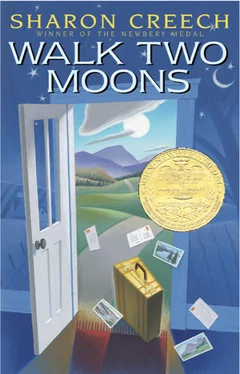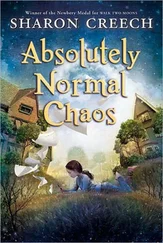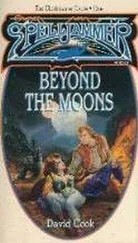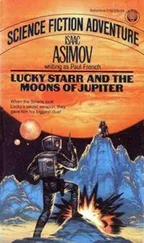Phoebe looked at me and I looked at Phoebe. “We were just passing by,” I said, “and we thought we would see how you were doing.”
“That’s nice,” Mrs. Partridge said, patting her knees. “Oh, Phoebe, I think I met your brother.”
Phoebe said, “I don’t have a brother.”
“Oh?” Mrs. Partridge tapped her head. “I guess this old noggin isn’t as sharp as it used to be.” As we left, she said, “Goodness, you girls stay up late.”
Outside, Phoebe said, “I’ll make a list of items which the police will want to investigate further: the sword, the suspicious spot on the floor, and several hair strands which I picked up.”
“Phoebe, you know when you said that your mother would never leave without an explanation? Well, she might. A person—a mother—might do that.”
Phoebe said, “ My mother wouldn’t. My mother loves me.”
“But she might love you and still not have been able to explain.” I was thinking about the letter my mother left me. “Maybe it would be too painful for her to explain. Maybe it would seem too permanent.”
“I don’t know what in the world you are talking about.”
“She might not come back, Phoebe—”
“Shut up, Sal.”
“She might not. I just think you should be prepared—”
“She is too coming back. You don’t know what you’re talking about. You’re being horrid.” Phoebe ran into the house.
When I got home and had crept up to my room, I remembered how Phoebe had shown me some things in her room that reminded her of her mother: a handmade birthday card, a photograph of Phoebe and her mother, and a bar of lavender soap. When Phoebe pulled a blouse out of the closet, she said she could see her mother standing at the ironing board smoothing the blouse with her hand. The wall opposite Phoebe’s bed was painted violet. She said, “My mother painted it last summer while I painted the trim at the bottom.”
And I knew exactly what Phoebe was doing and exactly why. I had done the same things when my mother left. My father was right: my mother did haunt our house in Bybanks, and the fields and the barn. She was everywhere. You couldn’t look at a single thing without being reminded of her.
When we moved to Euclid, one of the first things I did was to unpack gifts my mother had given me. On the wall, I tacked the poster of the red hen which my mother had given me for my fifth birthday, and the drawing of the barn she had given me for my last birthday. On my desk were pictures of her and cards from her. On the bookshelf, the wooden animals and books were presents from her.
Sometimes, I would walk around the room and look at each of these things and try to remember exactly the day she had given them to me. I tried to picture what the weather was like and what room we were in and what she was wearing and what precisely she had said. This was not a game. It was a necessary, crucial thing to do. If I did not have these things and remember these occasions, then she might disappear forever. She might never have been.
In my bureau were three things of hers that I had taken from her closet after she left: a red, fringed shawl; a blue sweater; and a yellow-flowered cotton dress that was always my favorite. These things had her smell on them.
Once, before she left, my mother said that if you visualize something happening, you can make it happen. For example, if you are about to run a race, you visualize yourself running the race and crossing the finish line first, and presto! When the time comes, it really happens. The only thing I did not understand was what if everyone visualized himself winning the race?
Still, when she left, this is what I did. I visualized her reaching for the phone. Then I visualized her dialing the phone. I visualized our phone number clicking through the wires. I visualized the phone ringing.
It did not ring.
I visualized her riding the bus back to Bybanks. I visualized her walking up the driveway. I visualized her opening the door.
It did not happen.
While I was thinking about all of this that night after Phoebe and I crept into Mrs. Cadaver’s house, I also thought about Ben. I had the sudden urge to run over to the Finneys and ask him where his own mother was, but it was too late. The Finneys would be asleep.
Instead, I lay there thinking of the poem about the traveler, and I could see the tide rising and falling, and those horrid white hands snatching the traveler. How could it be normal, that traveler dying? And how could such a thing be normal and terrible both at the same time?
I stayed awake the whole night. I knew that if I closed my eyes, I would see the tide and the white hands. I thought about Mr. Winterbottom crying. That was the saddest thing. It was sadder than seeing my own father cry, because my father is the sort of person you expect might cry if he was terribly upset. But I had never, ever, expected Mr. Winterbottom—stiff Mr. Winterbottom—to cry. It was the first time I realized that he actually cared about Mrs. Winterbottom.
As soon as it was daylight, I phoned Phoebe. “Phoebe, we’ve got to find her.”
“That’s what I’ve been telling you,” she said.
The next day was most peculible , as Mrs. Partridge would say.
Phoebe arrived at school with another message, which she had found on her porch that morning: We never know the worth of water until the well is dry. “It’s a clue,” Phoebe said. “Maybe my mother is hidden in a well.”
I walked straight into Ben when I went to my locker. That grapefruit aroma was in the air. “You’ve got something on your face,” he said. With soft, warm fingers he rubbed the side of my face. “It’s probably your breakfast.”
I don’t know what came over me. I was going to kiss him. I leaned forward just as he turned around and slammed the door of his locker. My lips ended up pressed against the cold, metal locker.
“You’re weird, Sal,” he said.
Kissing was thumpingly complicated. Both people had to be in the same place at the same time, and both people had to remain still so that the kiss ended up in the right place. But I was relieved that my lips ended up on the cold metal locker. I could not imagine what had come over me, or what might have happened if the kiss had landed on Ben’s mouth. It was a shivery thing to consider.
I made it through the rest of my classes without losing control of my lips.
Mr. Birkway sailed into class carrying our journals. I had forgotten all about them. He was leaping all over the place exclaiming, “Dynamite! Unbelievable! Incredible!” He said he couldn’t wait to share the journals with the class.
Mary Lou Finney said, “ Share with the class ?”
Mr. Birkway said, “Not to worry! Everyone has something magnificent to say. I haven’t read through every page yet, but I wanted to share some of these passages with you right away.”
People were squirming all over the room. I was trying to remember what I had written. Mary Lou leaned over to me and said, “Well, I’m not worried. I wrote a special note in the front of mine distinctly asking him not to read it. Mine was private.”
Mr. Birkway smiled at each nervous face. “You needn’t worry,” he said. “I’ll change any names that you’ve used, and I’ll fold this piece of yellow paper over the cover of whichever journal I’m reading, so that you won’t know whose it is.”
Ben asked if he could go to the bathroom. Christy said she felt sick and begged to see the nurse. Phoebe asked me to touch her forehead because she was pretty sure she had a fever. Usually Mr. Birkway would let people go to the bathroom or to the nurse, but this time he said, “Let’s not malinger!” He picked up a journal, slipping the yellow paper over it before anyone had a chance to examine the cover for clues as to its author’s identity. Everyone took a deep breath. You could see people poised nervously, waiting as tensely as if Mr. Birkway was going to announce someone’s execution. Mr. Birkway read:
Читать дальше












